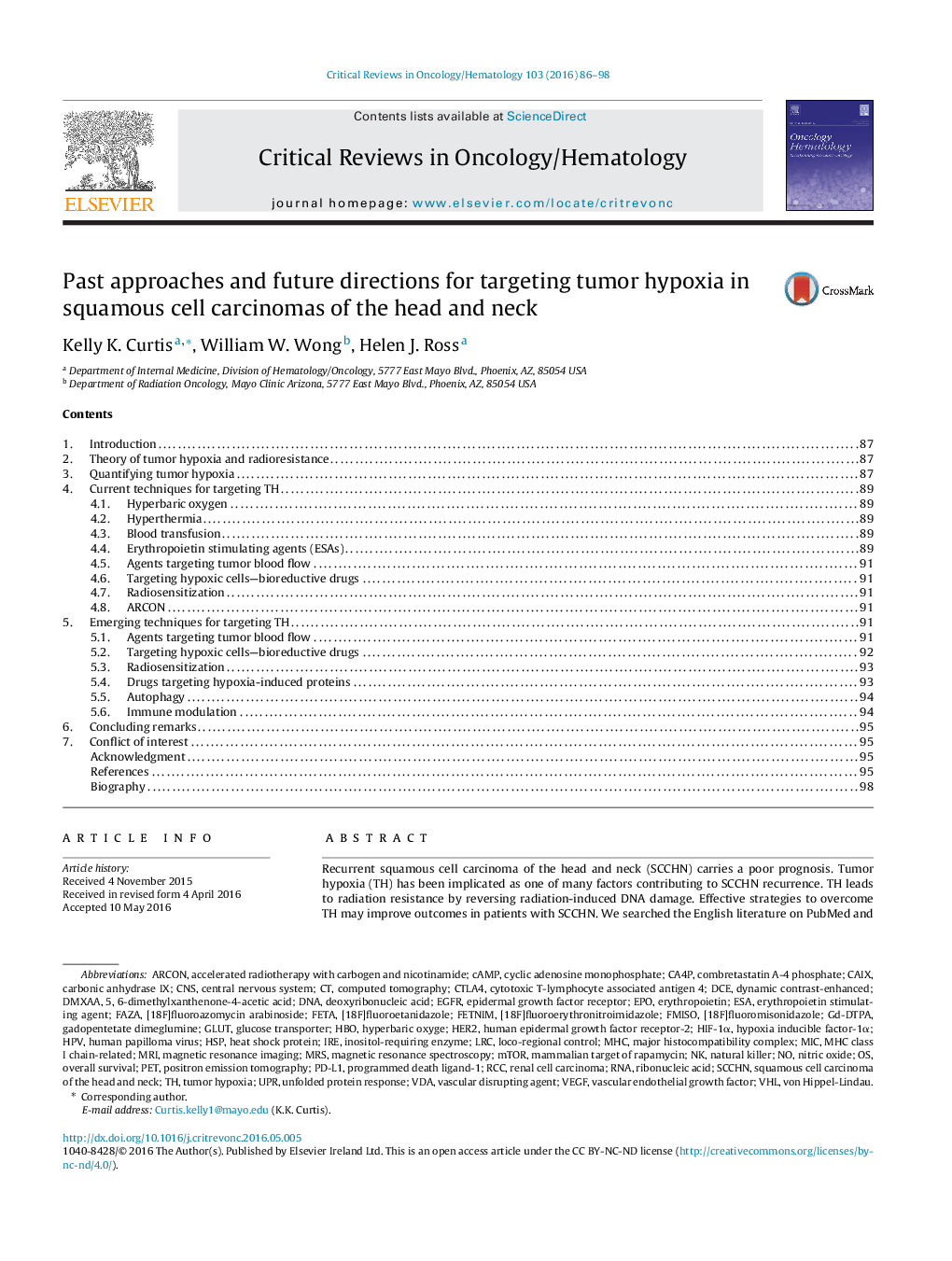| Article ID | Journal | Published Year | Pages | File Type |
|---|---|---|---|---|
| 6113374 | Critical Reviews in Oncology/Hematology | 2016 | 13 Pages |
Recurrent squamous cell carcinoma of the head and neck (SCCHN) carries a poor prognosis. Tumor hypoxia (TH) has been implicated as one of many factors contributing to SCCHN recurrence. TH leads to radiation resistance by reversing radiation-induced DNA damage. Effective strategies to overcome TH may improve outcomes in patients with SCCHN. We searched the English literature on PubMed and reviewed the reference sections of key articles related to TH (publications spanning from the early 1900s to the present). We summarized the underlying theory of TH in SCCHN, methods for quantifying it, and the numerous therapies developed to modulate it. We included articles that set the foundation of TH as a theory and the most relevant articles published within the last 15 years related to TH quantification and therapeutic targeting. Despite extensive research, targeting TH in SCCHN has not become a part of routine clinical practice in North America, and we analyze the pitfalls in hypoxia research that have led to this failure. We propose that future studies should test a combined approach of targeting the immune system in addition to cellular pathways rendered aberrant in TH and should include development of novel surrogate markers of TH and/or TH imaging.
